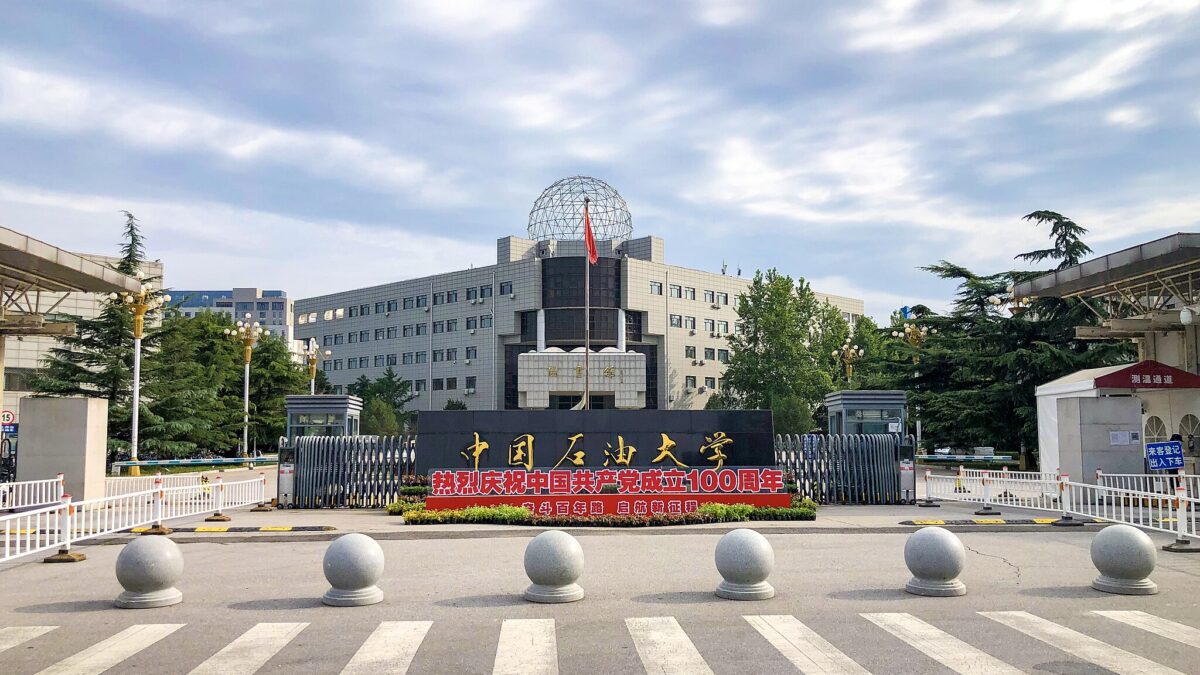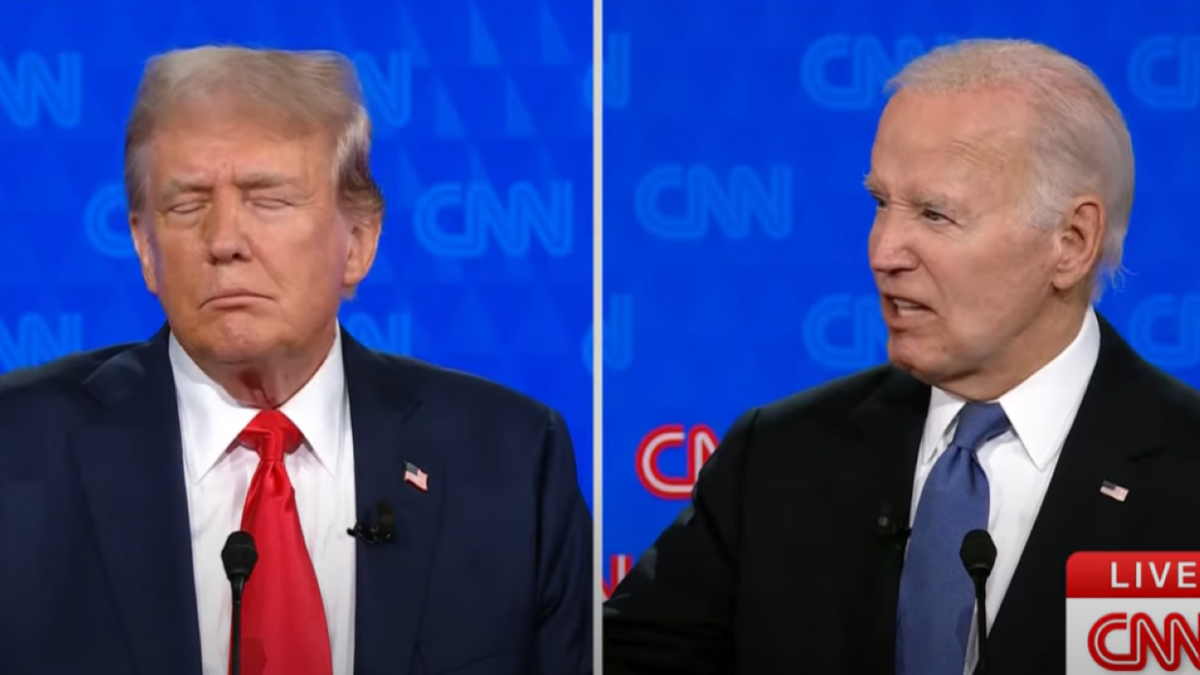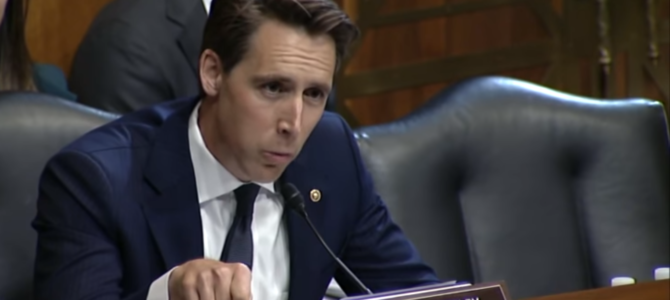Last November, during the U.S.-China summit in San Francisco, Chinese Communist Party (CCP) leader Xi Jinping announced a plan to invite 50,000 young Americans to exchange programs to study in China over the next five years. But any Americans considering taking up Xi’s offer may want to think again after four instructors from a U.S. college were stabbed in broad daylight in China last week.
The four instructors, including three U.S. citizens, are affiliated with Cornell College in Iowa (not Cornell University in New York). They are teaching at Beihua University in Jilin, a northeastern city in China, through an exchange program funded by Beihua. According to Jilin’s police report, on the morning of June 11, the four instructors were walking in a popular public park when a 55-year-old local man, Cui, “collided” with one of the instructors. Cui started stabbing the instructors and a Chinese citizen who tried to stop him. Police apprehended Cui quickly. All five victims were rushed to a local hospital. Fortunately, no one suffered life-threatening injuries.
Chinese police didn’t publicly share Cui’s motive for such a vicious attack. Chinese government censors quickly took down any images related to the stabbing incident and suppressed related news reports and online discussions. China’s foreign ministry spokesman insisted the whole thing was an “isolated incident” and “China is widely regarded as one of the safest countries in the world.”
CCP Provoking Hostility Toward Foreigners
It’s true that average Chinese citizens’ violence against foreigners has been sporadic in China. Most foreigners I know who traveled to China said the best part of their visits has always been the friendliness and hospitality of the Chinese people. However, it’s disheartening to note that some Chinese citizens’ welcoming attitude toward foreigners has turned into hostility due to the Chinese Communist Party’s campaign against foreign espionage.
Nationalism has been on the rise since Xi became the head of the CCP. His paranoia over what he perceives as foreign infiltration into China led him to launch a multi-year campaign against foreign espionage in the name of national security.
In 2022, China began offering cash rewards of around 100,000 yuan ($15,000) for tips about individuals who endanger national security. In 2023, Xi expanded China’s counterespionage law, insisting that “news outlets, broadcasters, television stations, the culture sector, and internet providers should also take part in anti-espionage education.” Since then, Chinese citizens have been warned by their government repeatedly that all foreigners might be spies.
Increased Discrimination
In 2024, China’s spy agency, the Ministry of State Security (MSS), opened a public account on WeChat, a popular messaging app with nearly 1 billion users, urging “all members of society to join its fight against espionage, offering rewards and protection for those who provide information.” One of its WeChat posts was titled, “Hunting for beauty? You may become the prey,” and warned Chinese citizens about “exotic beauties,” or “honey traps.” These much-hyped campaigns have led to increased suspicion of foreigners by some Chinese businesses and citizens.
For example, a Chinese hotel reportedly declined to accommodate foreign guests because the Chinese government fines any hotel up to $15,000 if the hotel accidentally enters the foreign guest’s identification information wrong in its system. Last October, a Chinese citizen answered Hamas’ call to attack Jews on the “day of rage” by stabbing an Israeli embassy worker in Beijing.
After the foreign instructors were stabbed last week, retired Gen. Robert Spalding, a longtime China critic, posted on X.com, “This is what happens when you tell the Chinese people all Americans are spies.” Another China expert warned on X.com, “It would be a big mistake to just consider this a one-off event for Americans,” but rather it is “a manifestation of rabid officially sanctioned anti-foreigner racial superiority propaganda. This isn’t just a one-off but official policy.”
Chinese Government’s Threat
Still, for any Americans or American organizations considering participating in any exchange programs in China, the biggest threat to their safety comes from the Chinese government. Chinese authorities have increasingly targeted foreign companies and businesspeople with raids, investigations, and detentions. The Chinese authorities have been applying “exit bans” arbitrarily to prevent some foreigners, including those who have committed no wrongdoing, from leaving China. John Feng, Asia editor of Newsweek, estimated that more than 200 U.S. citizens remain “wrongfully detained” in China as of November 2023 and, “Some were persecuted on suspected religious grounds; others are the likely victims of geopolitics. All are at the mercy of China’s opaque criminal justice system, often with no recourse to legal assistance and little contact with home.”
Besides concerns for personal safety, Americans and American organizations interested in attending exchange programs in China should be clear-eyed about the CCP’s real motives. Had the CCP really been interested in enhancing cultural and political understanding with the West, China would not have expelled several American journalists from three prominent U.S. media organizations during the early days of the Covid pandemic outbreak in 2020, when timely and truthful reporting could have saved lives.
Real Motives
The CCP’s motives for setting up and paying for these cultural and educational exchange programs for young Americans are twofold. First, it has long been the CCP’s standard practice to shape public opinions and policies favorable to China’s interests through cultivating relationships with foreigners, such as former Secretary of State Henry Kissinger. The Chinese government showers these foreigners with lavish trips and gifts. Once inside China, they become a captive audience. The party tightly controls what these foreigners see and the people they interact with to ensure they bring home party-sanctioned narratives to influence others and policies.
The number of American university students in China has fallen 95 percent from 15,000 at its peak a decade ago to only 700 as of last year. Why does Xi want to see more young Americans in China, even amid his anti-foreign espionage campaign? The CCP considers influencing American youths to be a rewarding long-term investment, as many of them are the future leaders of America. Jeanette Tong and Jianli Yang at Citizen Power Initiatives for China pointed out that Beijing “wants to sow seeds in young minds, shaping their future perceptions of authoritarian regimes and molding their worldview.”
The CCP also seeks to flip some American youth into gathering intelligence on behalf of China when they return home. This is not fearmongering. Last September, U.K. police arrested Chris Cash, a 28-year-old British citizen, and a U.K. Parliament researcher, for allegedly spying for China. Cash reportedly had studied and worked in China and was recruited as a “sleeper” agent during his stay in China, tasked with infiltrating the U.K.’s political networks critical of the Beijing regime. Something similar may happen to a young American who studies in China, too. Tong and Yang warned, “using Americans against America, creating internal chaos in the United States, is the CCP’s most cost-effective and efficient weapon against its adversaries.”
Under normal circumstances, studying abroad or participating in cultural exchange in another country enriches young people’s lives. However, these are not normal circumstances. The United States and China are currently embroiled in a fierce strategic competition — economically, militarily, and ideologically. The possibility of a direct military conflict, particularly if China were to invade Taiwan, is a stark reality. Given this context, Americans and American organizations must seriously reconsider the potential risks of participating in Xi’s all-expenses-paid exchange programs.









